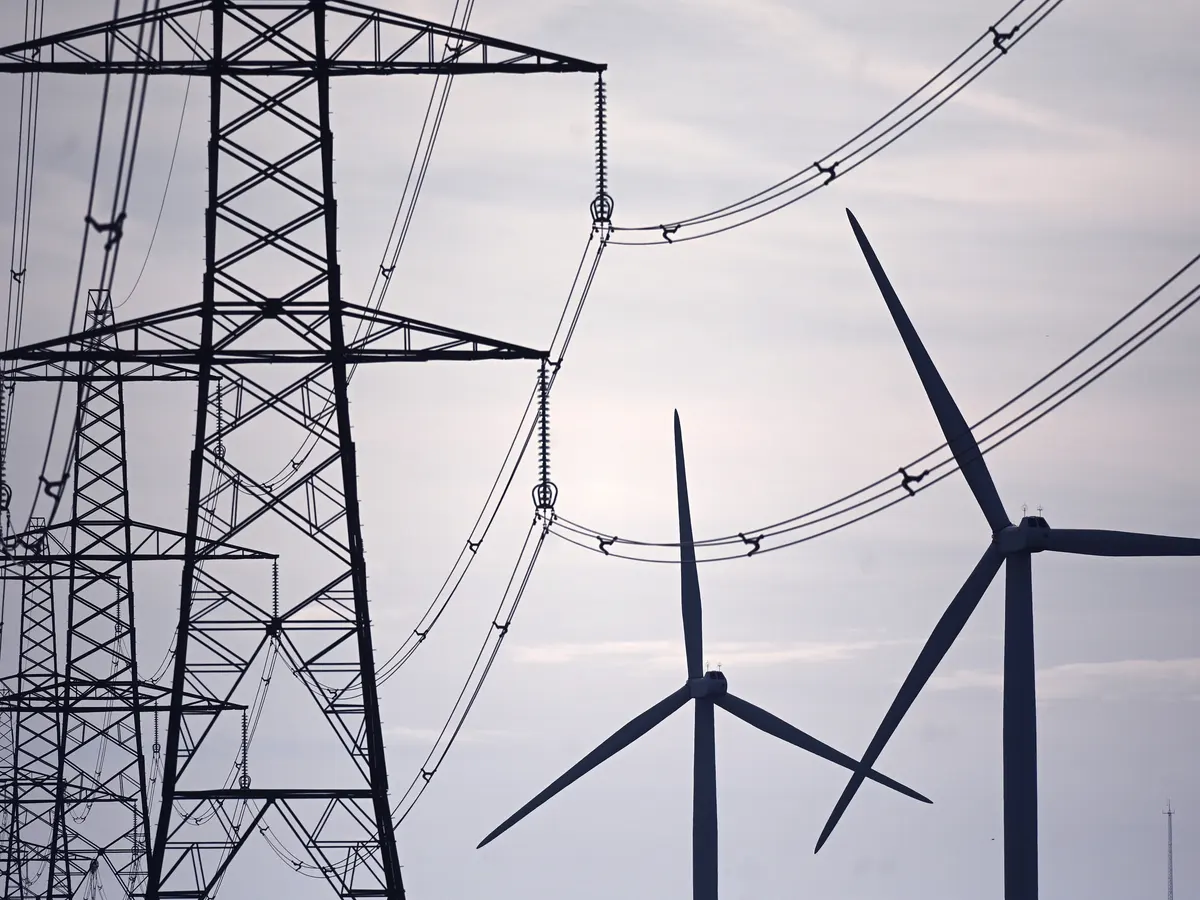UK (Parliament Politic Magazine) – The UK government is currently devising a strategy to significantly reduce the time required for the installation of power lines necessary for new renewable energy initiatives. Grant Shapps, the Secretary for Energy Security and Net Zero, recently convened a meeting with prominent figures from the energy sector, including EDF, Shell, and BP, at Downing Street to discuss the future of renewables. In an interview with the BBC, Shapps announced that he will unveil proposals on Friday to expedite the implementation of this crucial infrastructure.
Shapps’ announcement follows the submission of a highly anticipated report by Nick Winser, an esteemed energy specialist serving as the UK Electricity Networks Commissioner. This report outlines possible approaches for expediting the process of power line delivery, providing valuable insights to the government.
Revolutionary Green Energy Delivery Plan Set to Accelerate Transition
Winser’s report is anticipated to suggest strategies for enhancing the efficiency of planning procedures for infrastructure development, encompassing pylons, underground cabling, and substations. Presently, the UK National Grid is undertaking the ambitious “Great Grid Upgrade,” which is hailed as the most extensive modernization of the electricity grid in decades. This initiative aims to facilitate the integration of renewable energy generated by new wind and solar projects into households across England and Wales.
However, such infrastructure has, in many cases, been met with fierce opposition, particularly in East Anglia, located in the southeast of the UK. Plans for a new 180km chain of pylons in this region have managed to unite campaigners, celebrities, and even government ministers in opposition against the proposed works.
These groups assert that their opposition is not directed towards green energy itself, but rather towards the visual blight that the infrastructure would create, as well as the potential local environmental damage it may cause.
The pylons will transport electricity generated by offshore wind farms located on the eastern coast of the UK to the vicinity of London, where it can be utilized in the capital city. Furthermore, activists have raised objections against the construction of two substations, which are integral to Iberdrola’s $8 billion North Sea wind farm project, and have taken legal action to challenge these plans.
UKs Blueprint for Reducing Power Line Deployment Time
Grant Shapps, in an interview with BBC Radio 4’s World at One, announced his intention to release the report’s recommendations on Friday, accompanied by a prompt government response. He revealed: “The idea is to halve the amount of time it takes to get these connections going’’.
Winser has previously informed the UK parliament that he intends to present a proposal on how to reduce the delivery time for such projects from approximately 14 years to seven. This initiative aims to assist the government in achieving its goal of decarbonizing the grid by 2035. However, he cautioned that numerous ongoing projects would still need to adhere to the existing processes.
Ana Musat, the executive director of the industry group RenewableUK, attended the meeting at Downing Street. She expressed her thoughts by stating: “We are all aware that prioritizing the roll-out of cheap, homegrown renewable energy projects is essential to strengthen Britain’s energy security.”
She urged the government to establish a reliable and continuous flow of renewable projects, aiming to fully exploit the potential for supply chain investments in sectors where the UK holds a competitive edge, such as floating wind technology, cables, and blades.
Read More: BVI Delegation Visits UK Parliament To Build Strong Relations
UK Unveils Plan to Slash Timelines for Green Energy Power Line Rollout
The announcement arrives amidst the most extensive upgrade of the UK grid in decades, as the nation endeavors to connect wind and solar farms with residential areas. Prominent figures from EDF, SSE, Shell, BP, and various renewable energy companies convened with Grant Shapps, shortly after the government’s recent declaration to issue over 100 fresh oil and gas licences in the Scottish coastal region.
Detractors argue that this decision could potentially undermine the United Kingdom’s climate objectives, likening it to a destructive force demolishing our commitment to environmental sustainability.
According to Ana Musat: “There was widespread agreement of the need to improve the UK’s investment environment, as we’re facing very challenging economic conditions and strong international competition for supply chain, skills and investment’’.
The industry representatives state that According to experts, in order to fully capitalize on supply chain investments in sectors like floating wind, cables, and blades, it is crucial to establish a dependable pipeline of renewable energy projects.

